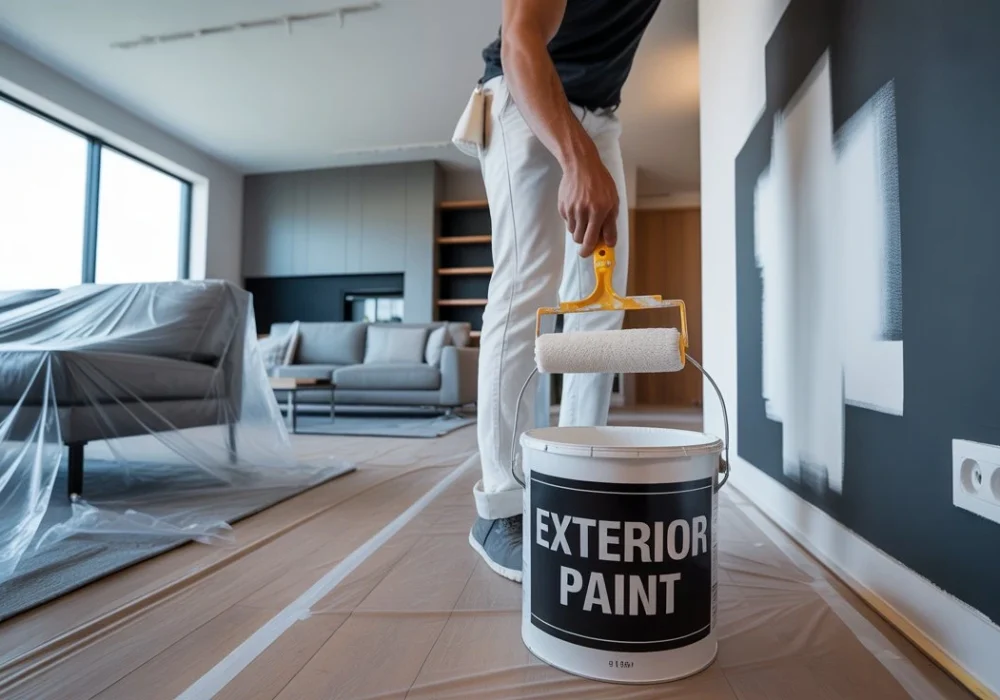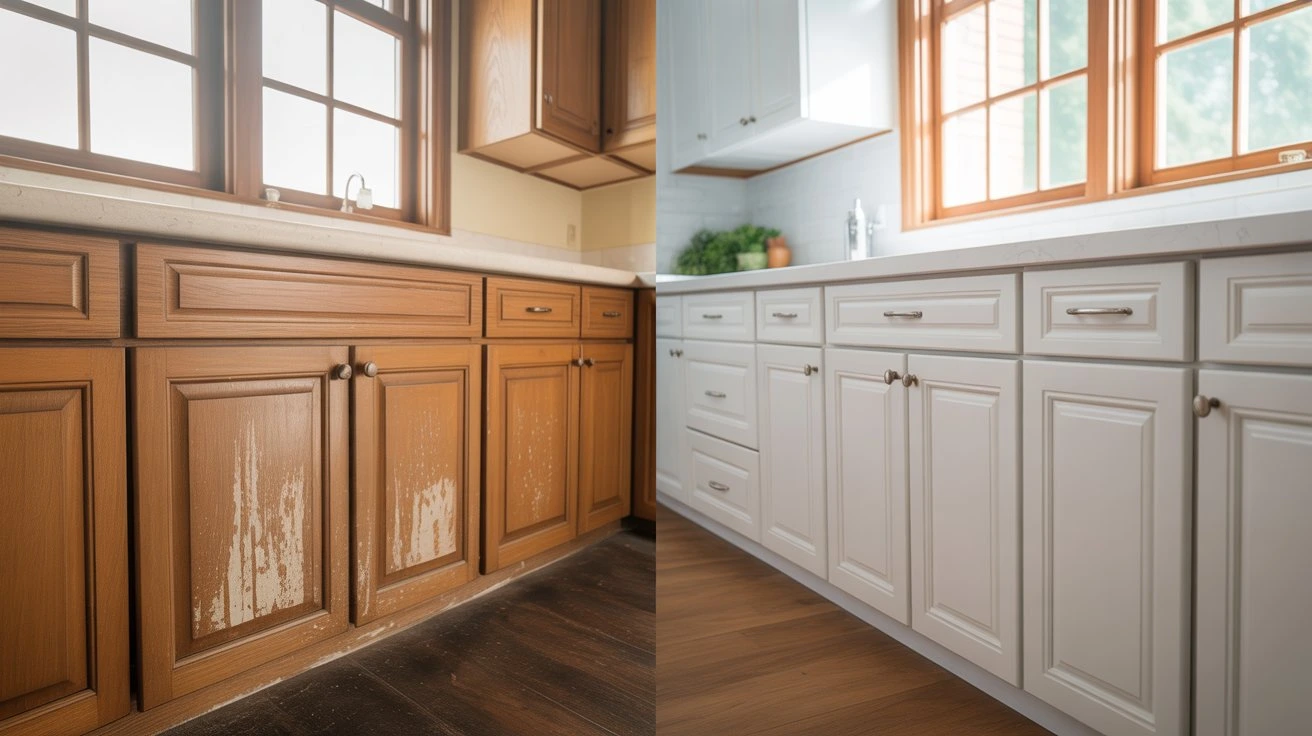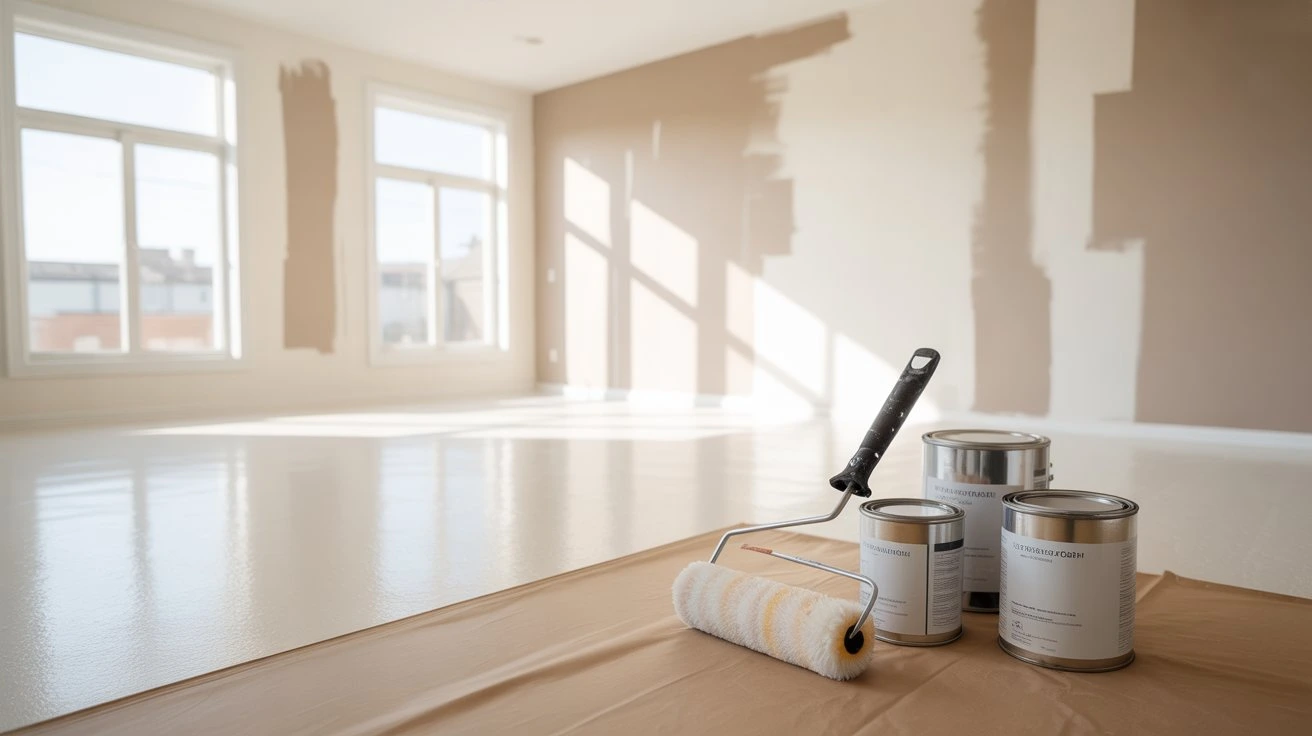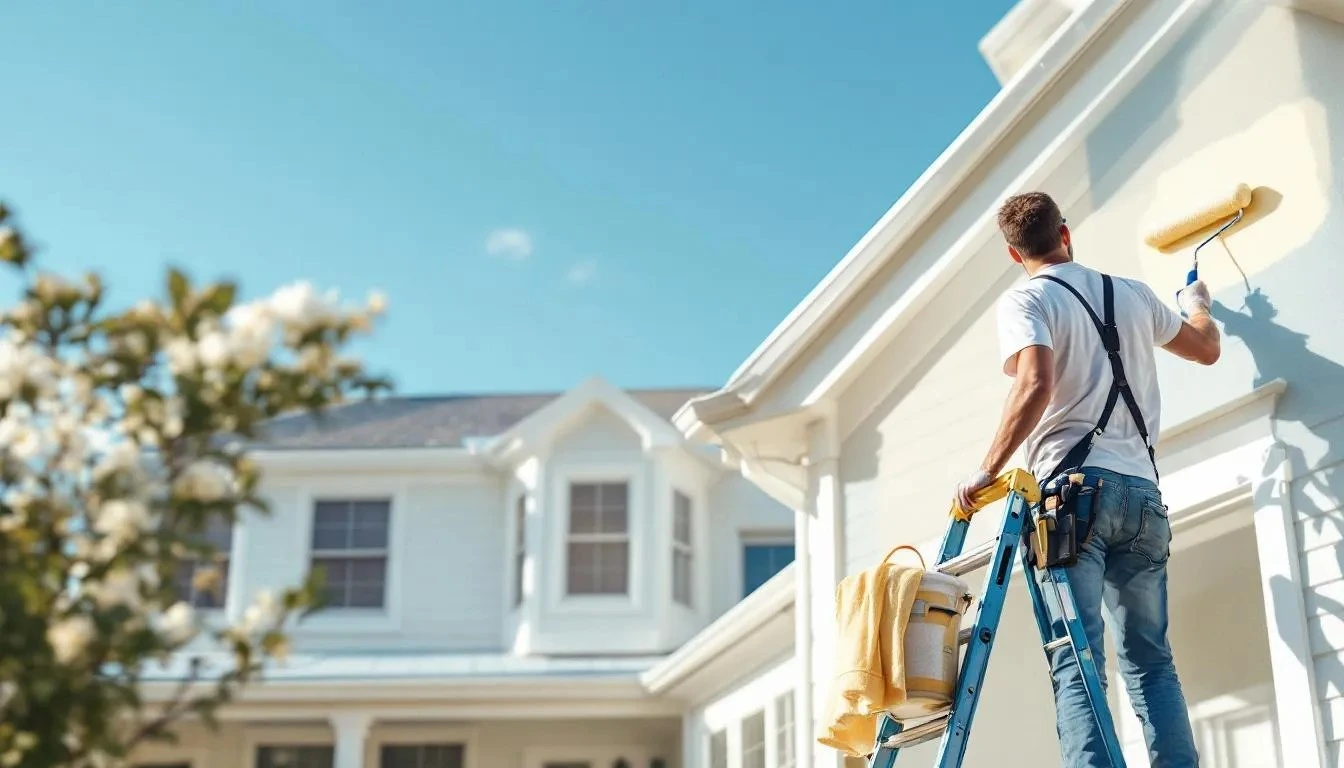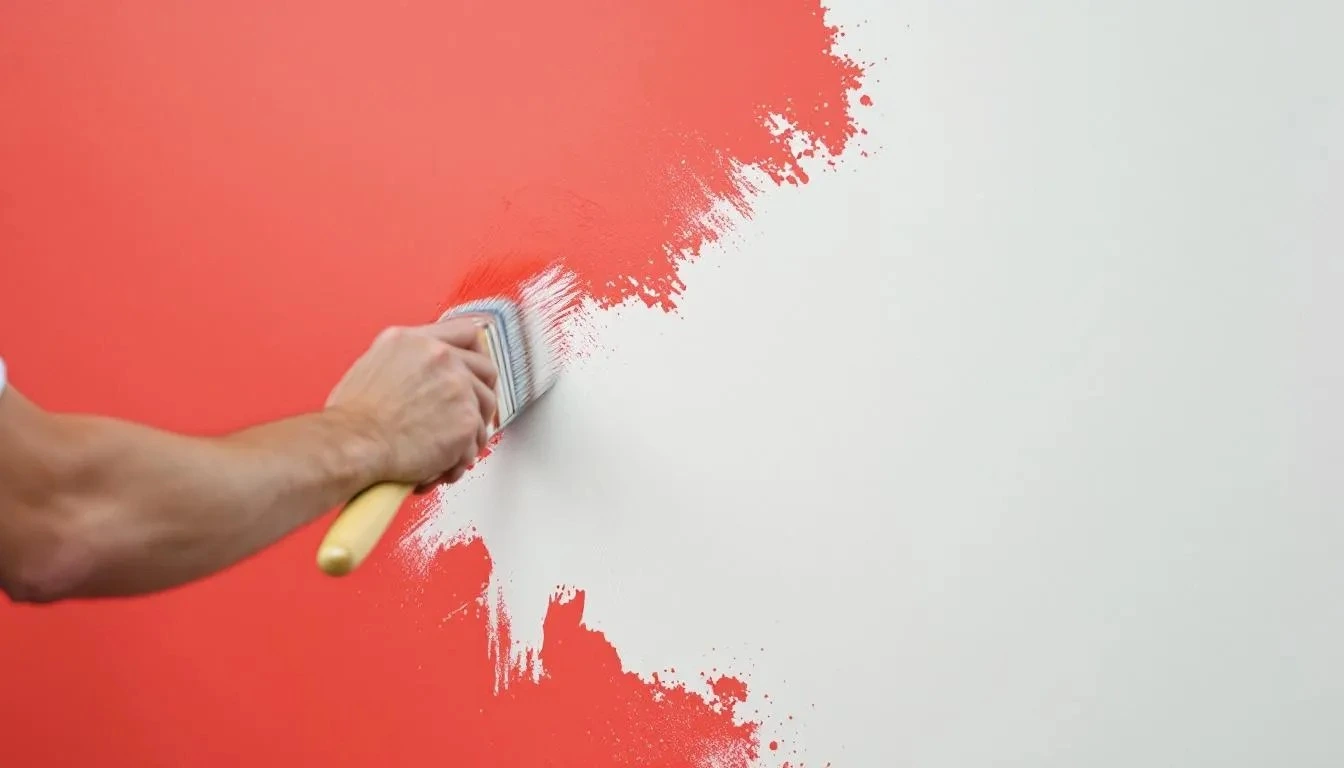If you’ve ever stared at a leftover can of outdoor paint and wondered, “Can I just use this inside?” you’re not alone. Homeowners across Tennessee often ask this when tackling a DIY project. As leaders in Nashville exterior painting, Affordable Painting Plus is here to explain why this seemingly simple swap can actually lead to serious issues.
Let’s dive into the real differences between interior and exterior paint, why using exterior paint indoors isn’t a good idea, and what to do if you already have.
Understanding the Difference Between Interior and Exterior Paint
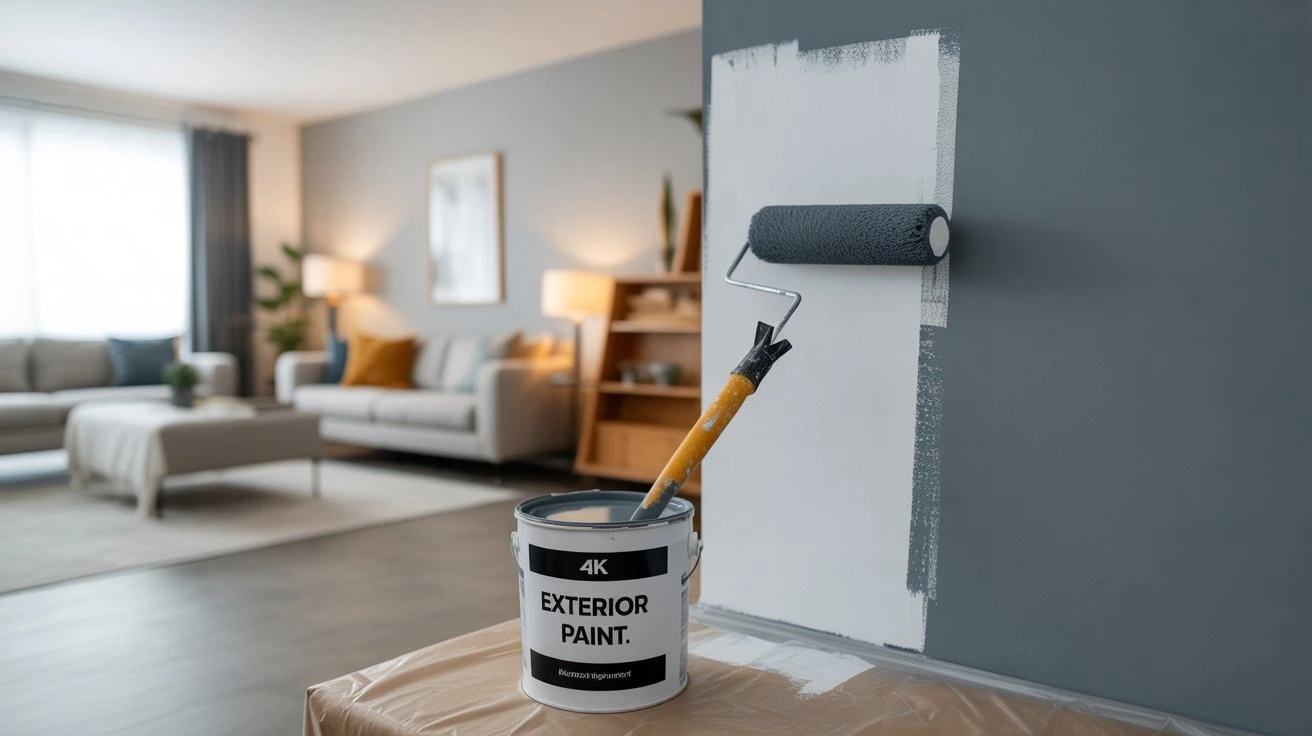
What makes exterior paint different
Exterior paints are formulated to handle sun, wind, rain, and temperature swings. They contain strong resins, UV protectants, and mildewcides all built for durability. This makes them perfect for siding and fences but far too strong for indoor use.
Key ingredients and durability factors
Exterior paint is loaded with additives that help it resist cracking, peeling, and fading outdoors. However, these same ingredients can release high levels of VOCs (volatile organic compounds), making them hazardous indoors.
Why interior paint is designed differently
Interior paints are crafted to be low-odor, washable, and safe for enclosed areas. They’re smoother, easier to clean, and contain fewer toxins exactly what you need for bedrooms, kitchens, or living rooms. That’s why skilled exterior painters in Nashville never substitute one for the other.
Why You Should Not Use Exterior Paint Indoors
Health Risks: VOCs and toxic fumes
Exterior paint emits more VOCs than interior paint. Indoors, these fumes get trapped, leading to headaches, nausea, or worse. For families, especially with kids or pets, this poses a serious health hazard.
Performance Issues: Poor adhesion, longer drying, odor
Using exterior paint inside leads to uneven finishes and strong odors that linger for days. It also dries slower, attracting dust and smudges before it cures.
Wear and Tear: How it reacts to indoor environments
Exterior paint expands and contracts with temperature changes. Indoors, this flexibility works against you, causing cracks or bubbling on drywall.
Cost and Maintenance: Why it’s not worth it long-term
While it may seem like a money-saver, repainting or repairing walls later costs more. Instead, trust experts like Affordable Painting Plus, the reliable exterior painting contractors in Nashville, to recommend the right paint for every space.
What Happens If You’ve Already Used Exterior Paint Inside?
How to minimize exposure
If you’ve already painted indoors with exterior paint, ventilate immediately. Open windows, use fans, and run air purifiers to reduce fumes.
Safe removal or repainting steps
Once the paint has cured, you can cover it with a low-VOC interior primer and paint. This helps seal off lingering VOCs.
When to call a professional painter
If you’re unsure or the odor persists, contact professionals like Affordable Painting Plus. Their experienced exterior painting Nashville TN team knows how to safely repaint without damaging your walls or your air quality.
Choosing the Right Paint for Each Space
Best types of paint for interiors
For indoor use, latex or acrylic-based interior paints are the safest and most durable options. They offer low odor and easy cleanup perfect for home interiors.
When to use semi-gloss, satin, or matte
- Matte: Ideal for bedrooms and ceilings (hides imperfections).
- Satin: Great for living areas and hallways (easy to wipe clean).
- Semi-gloss: Best for kitchens, bathrooms, and trim (moisture-resistant).
Recommended finishes for kitchens, bathrooms, and living areas
High-humidity rooms like bathrooms benefit from mildew-resistant paint, while living rooms look best with soft satin finishes. At Affordable Painting Plus, we guide homeowners to choose finishes that match both function and style.
Can You Use Interior Paint Outdoors?
Why interior paint won’t last outdoors
Interior paints can’t handle Nashville’s changing weather. Without UV stabilizers or water-resistant binders, they quickly fade and peel.
Weather protection and UV resistance explained
Exterior paints include UV blockers, flexible resins, and moisture shields to withstand sun and rain. That’s why exterior painting in Nashville always requires weatherproof products tailored to Tennessee’s humid climate.
Common Questions About Using Exterior Paint Indoors
Can you use exterior latex paint inside?
Technically yes, but it’s not recommended. Even water-based exterior paints contain additives unsuitable for indoor air quality.
Is WeatherShield® safe to use indoors?
No WeatherShield® and similar brands are designed for outdoor protection and release VOCs that aren’t safe indoors.
Can I use exterior paint for trim or garage walls?
Garages and unfinished basements with ventilation are exceptions. Still, consult Affordable Painting Plus, your trusted exterior painting contractor Nashville, for safe product choices.
Is it safe to use exterior paint in a bathroom?
Bathrooms need humidity-resistant interior paint not exterior. The latter can peel or produce persistent odors.
Why Choose Affordable Painting Plus for Safe, Professional Painting
Expert guidance on paint types and finishes
With decades of experience in Nashville exterior painting, our experts ensure every surface gets the correct paint type and finish protecting both your home and your health.
Eco-friendly, low-VOC options for healthy homes
We use eco-friendly paints with minimal VOCs, ideal for families and allergy-sensitive homeowners. Safety and sustainability are at the core of every project.
Get a free quote today
Transform your home safely and beautifully. Contact Affordable Painting Plus the preferred name in exterior painting Nashville for a free quote and color consultation.
Final Thought
Using exterior paint indoors may seem harmless, but it brings more trouble than value. From toxic fumes to poor performance, it’s simply not worth the risk.
If you’re planning to repaint, choose wisely and if you’re unsure, call the professionals. Affordable Painting Plus provides trusted exterior painting in Nashville TN and interior services that guarantee safety, quality, and stunning results.
FAQs
Why is exterior paint unsafe for indoor use?
Because it contains strong chemicals and VOCs designed for outdoor durability, not indoor air safety. Always opt for interior paint inside.
Can exterior paint affect air quality indoors?
Yes. It emits lingering fumes that can irritate the eyes, nose, and lungs. Proper ventilation and repainting are essential.
How can I tell if my walls were painted with exterior paint?
A strong odor or tacky texture is a giveaway. If in doubt, a professional painter can test the surface for you.
What’s the best paint for a healthy home?
Low-VOC or zero-VOC interior paints provide safety and beautiful finishes perfect for families and pets.
Where can I find expert painters in Nashville?
Look no further than Affordable Painting Plus, your go-to for nashville exterior painting and safe, high-quality results every time.

